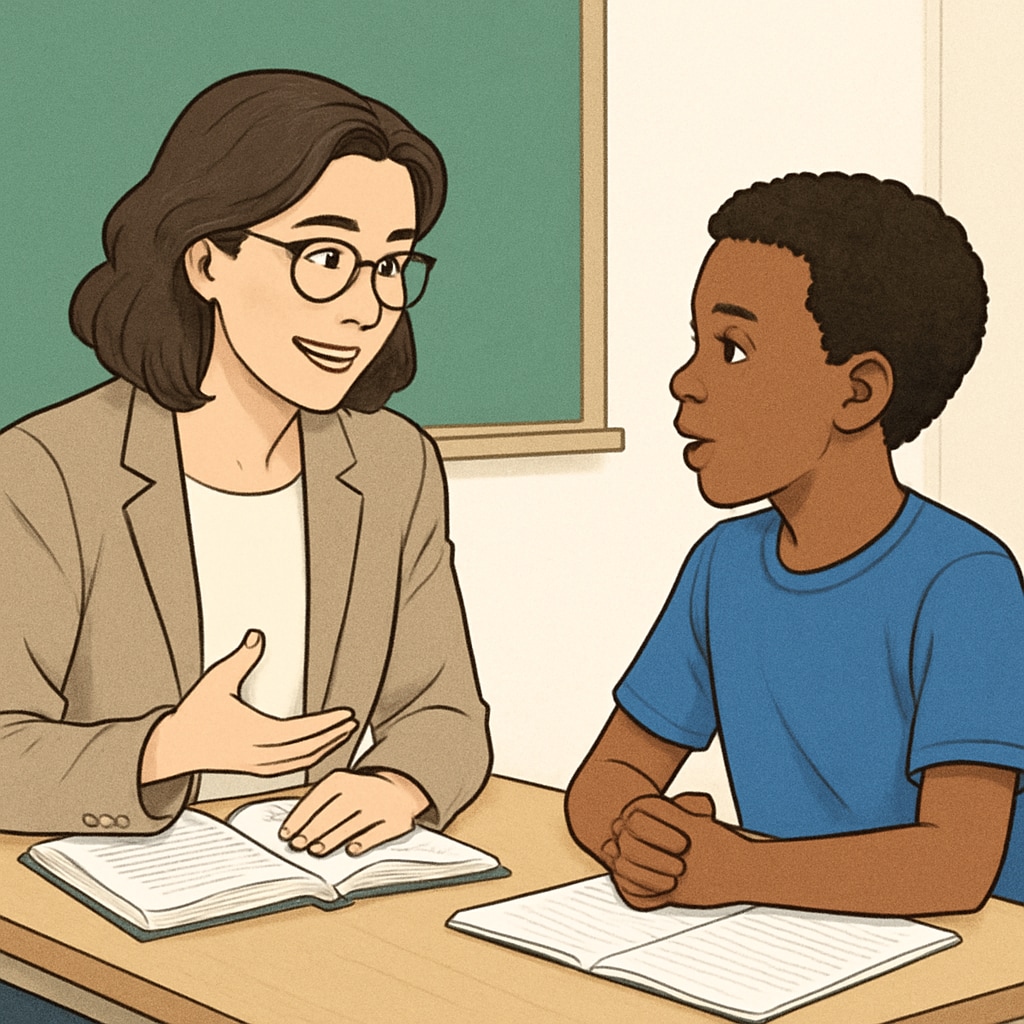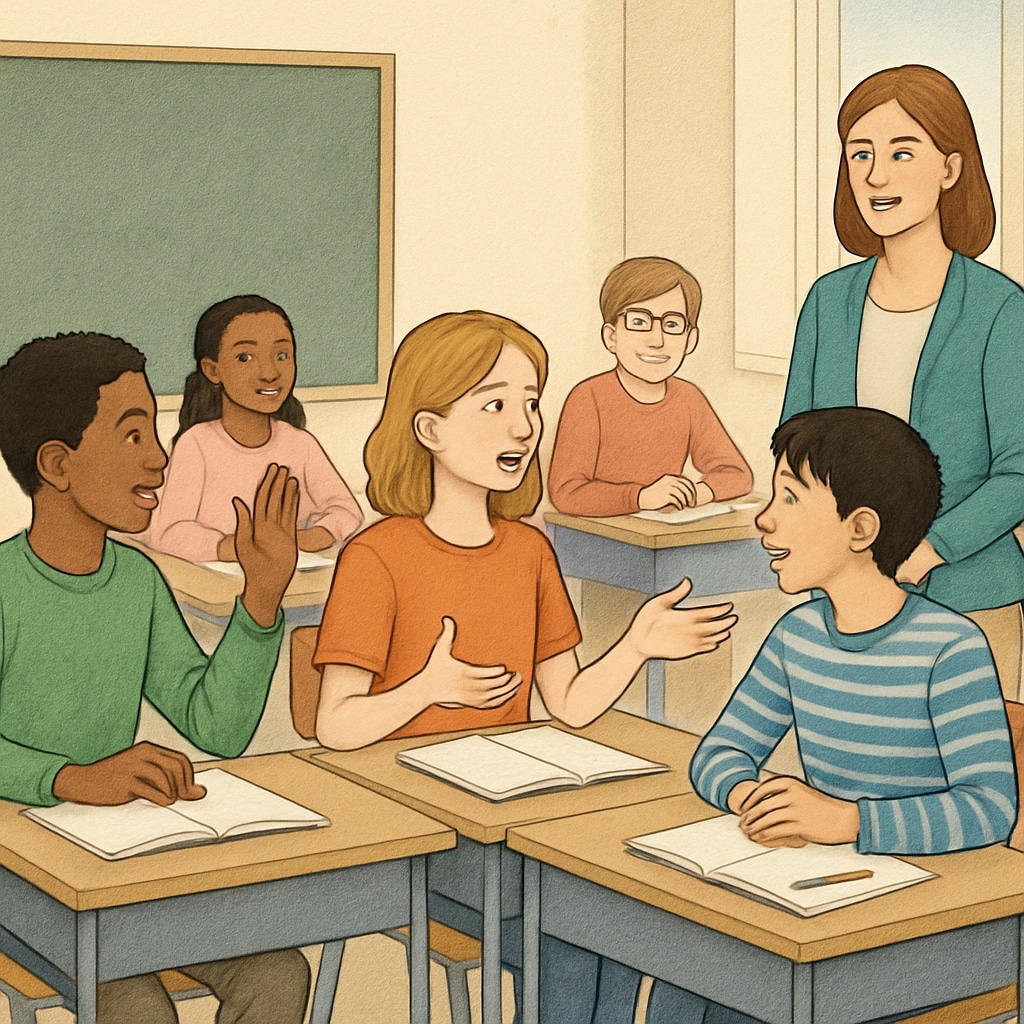Moments of heartfelt student gratitude are among the most profound rewards in education. When a student says, “Thank you for truly caring about my thoughts,” it is more than just words—it is a testament to the teacher’s ability to connect, inspire, and support. These moments illustrate how meaningful teacher influence can shape lives and highlight the power of listening in fostering authentic teacher-student interaction.
Listening, as simple as it sounds, is often underestimated in its ability to transform the classroom environment. Educators who actively listen to their students create an atmosphere of mutual respect, trust, and understanding. This article delves into the significance of such moments, exploring real-life examples and analyzing how listening can influence student growth and teacher-student relationships.
The Transformative Power of Student Gratitude
For educators, hearing a genuine “thank you” is more than validation—it is evidence of the positive impact they have on a young person’s life. When students express gratitude, it often stems from moments when a teacher has gone beyond the curriculum, showing empathy, patience, and a willingness to understand their perspectives.
For example, consider the case of a middle school teacher who noticed a shy student struggling to articulate their thoughts during class discussions. Instead of dismissing the student’s silence, the teacher invited them for a one-on-one conversation, patiently listened, and encouraged them to share their ideas. Over time, the student gained confidence, eventually becoming one of the most active participants in class. When the student later wrote, “Thank you for truly caring about my thoughts,” it was a powerful reminder of the role educators play in shaping self-esteem and interpersonal trust.

Listening as a Bridge to Trust and Growth
Active listening is more than hearing words—it’s about understanding emotions, intentions, and unspoken concerns. This skill is essential for fostering trust and helping students feel valued. When teachers genuinely listen, they convey respect, which is crucial for building strong relationships and encouraging students to freely express themselves.
Listening also plays a pivotal role in promoting student growth. By understanding their challenges and aspirations, educators can adapt teaching methods to better suit individual needs. For instance, a high school teacher who listens to feedback about classroom dynamics might decide to incorporate more interactive activities to engage students. This responsiveness not only improves learning outcomes but also sends a powerful message: “Your voice matters.”

How Teachers Can Cultivate Listening Skills
To foster meaningful interactions, educators can implement strategies to improve their listening skills:
- Practice active listening: Focus on both verbal and non-verbal cues to fully understand students’ perspectives.
- Encourage open dialogue: Create opportunities for students to share their thoughts, such as through group discussions or anonymous surveys.
- Validate student experiences: Acknowledge their feelings and experiences to show that their voices are valued.
- Be patient: Allow students the time to articulate their thoughts without rushing or interrupting.
By prioritizing these practices, educators can strengthen their connection with students and foster an environment of trust and collaboration.
The Ripple Effect of Listening in Education
When teachers make listening a cornerstone of their approach, the benefits extend far beyond the classroom. Students who feel heard are more likely to develop confidence, empathy, and strong communication skills—qualities that are invaluable in their personal and professional lives.
Furthermore, the ripple effect of teacher-student interaction can inspire students to emulate similar behavior, fostering a culture of mutual respect and understanding in their communities. As a result, the simple act of listening has the potential to drive profound societal change.
In education, moments of genuine student gratitude reaffirm the importance of empathy and understanding. They remind us that teaching is not merely about imparting knowledge but about nurturing the human spirit. When students say, “Thank you for truly caring about my thoughts,” it reflects the transformative power of listening, trust, and connection in shaping brighter futures.
Readability guidance: Short paragraphs, clear transitions, and actionable advice ensure accessibility for educators seeking practical ways to enhance their listening skills. Lists summarize key points for quick reference.


